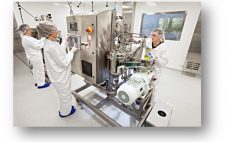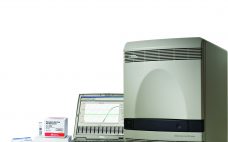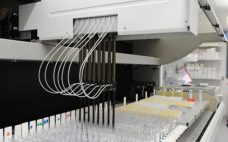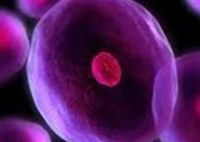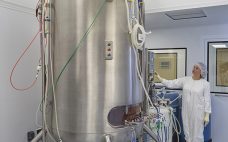This webcast features: Thomas Page, PhD, Vice President, Engineering and Asset Development, Fujifilm Diosynth Biotechnologies This technical webinar covers key considerations to support manufacturing activities from the earliest stages of cell line, viral replication platforms and/or viral vectors identification stage leading into clinical production. Having a line of sight into commercial production and the requirements leading into commercial approval are also essential for success. Key messages: Flexibility in conjunction with high containment are key for success Application of closed systems…
Webinars
Bioproduction Efficiencies Gained Using the New ExpiCHO Stable Production Medium
This webcast features: Shreya Lowmaster, Msc, Field Applications Scientis, Thermo Fisher Scientific Transition from the transient to stable production workflow exclusively in CHO cells with the new Gibco™ ExpiCHO™ Stable Production Medium and cGMP banked Gibco™ ExpiCHO-S™ cells. Transient titers in shake flasks and stable clone titers in a 50L Thermo Scientific™ HyPerforma™ single-use bioreactor were greater than 3.0 g/L in a fed-batch process with comparable product quality.
Ceramic Hydroxyapatite Chromatography Media – How to Start
This webcast features: Dr. Mark A. Snyder, Manager of the Process R&D Applications Group in the Process Chromatography Division of Bio-Rad Laboratories Our newest mixed-mode media, Ceramic Hydroxyapatite XT, is a calcium affinity cation exchange chromatography media. It is used for the purification of numerous types of biomolecules and provides single-step clearance of impurities and aggregates for monoclonal antibody purification. CHT XT is an easy-to-use mixed-mode chromatography media. Unlike other chromatography media it is both the ligand and the support…
Validation of the MycoSeq Mycoplasma Detection Kit for the Release of Veterinary Products
This webcast features: Sébastien Lievyns, Scientist, and Dr. Anne Thomas, Senior Principal Scientist, Analytical Sciences, Zoetis This webcast aims to show how Zoetis has validated the MycoSeq kit for the release of animal products. The Analytical Sciences group at Zoetis confirmed the limit of detection at 10 CFU/mL and good repeatability and intermediate precision of the qualitative mycoplasma qrt-PCR method in presence of these products. For direct PCR performed on vaccine, a background amplification is sometimes observed inducing a signal…
KrosFlo KR2i with KONDUiT: Turnkey Benchtop System for Walkaway TFF Automation
This webcast features: Philip Yuen, PhD, Application Scientist, Repligen Perform efficient, fully automated downstream tangential flow filtration with volumes from 1mL to 10 Liters. Fully integrated and easy to use out of the box, the Spectrum® KrosFlo® KR2i TFF System from Repligen is the lowest priced fully automated system available today that delivers precise and reproducible control and documentation of TFF processes. The system is compatible with hollow fiber or flat sheet filters, and offers a number of user-defined set-point…
Setting Up a Rapid Mycoplasma Assay Supporting Recombinant Production
This webcast features: Kent Persson, PhD, Project Manager, Octapharma Octapharma AB in Stockholm, Sweden, is the site for the NUWIQ® production, a recombinant human FVIII produced in human cells. Regulatory guidelines states that recombinant bulk harvest need to be tested for mycoplasma prior to further processing. The presentation will give the overview on a nearly completed journey on replacing an out-sourced mycoplasma test with Thermo Fisher’s MycoSEQ qPCR assay. Octapharma in Stockholm has recently been sought regulatory approval for the…
Scaling Up? No Problem with New 80cm Diameter Pre-packed OPUS Columns
This webcast features: Fletcher Malcom, Director of Product Management, Downstream Technologies, Repligen The technical and economic benefits of ready-to-use, pre-packed chromatography columns have been proven and documented. The question remains, how large can we go? This presentation will show how the unique design of the new 80cm pre-packed OPUS column delivers chromatographic performance, and how usage can result in substantial cost and time savings for clinical and commercial scale manufacturing.
Advantages of Fluoropolymer Single-Use Systems
This webcast features: Eric Isberg, Director of Life Sciences, Entegris There remain significant performance risks restricting the use of disposables in bioprocessing. These factors include bag breakage, which is particularly evident in cold temperature applications; concerns around E&L and material purity; and use of materials which are incompatible with the process itself. Improved plastics are required to meet existing and future process needs; fluoropolymers appear to be very promising to achieve these goals. Fluoropolymers’ unmatched characteristics are inherent to their…
Developing a Whole Genome CRISPR Screen to Improve CHO Cells for Biomanufacturing
This webcast features: Jamie Freeman, PhD, Product Manager, Horizon Discovery While great strides have been made in increasing the yield of biotherapeutic proteins, these have been achieved mainly through process improvement with a particular focus on media and feed strategies. Aside from single gene knockouts to allow for metabolic selection systems, the CHO host itself remains largely unchanged from that which was used thirty years ago. This webcast will cover how Horizon Discovery has used the recently released annotated sequence…
Integration of Cell Line, Process and Analytical Technologies to Speed Development and Clinical Supply of Emerging Therapy Products
This webcast features: Stewart McNaull, senior vice president of Business Development, KBI Biopharma, Inc. With biopharma’s ever-evolving pipeline of novel protein therapeutics, such as bi-specific antibodies, multimeric proteins, Fc-fusion proteins, and advanced monoclonal antibodies, CHO cells are being pushed to their productivity limits in drug development and manufacturing. Biopharmaceutical companies working on these promising new therapies increasingly struggle with development challenges such as weak protein expression, low-yield purification steps, and poorly optimized analytical techniques. As innovators address these challenges, robust…

